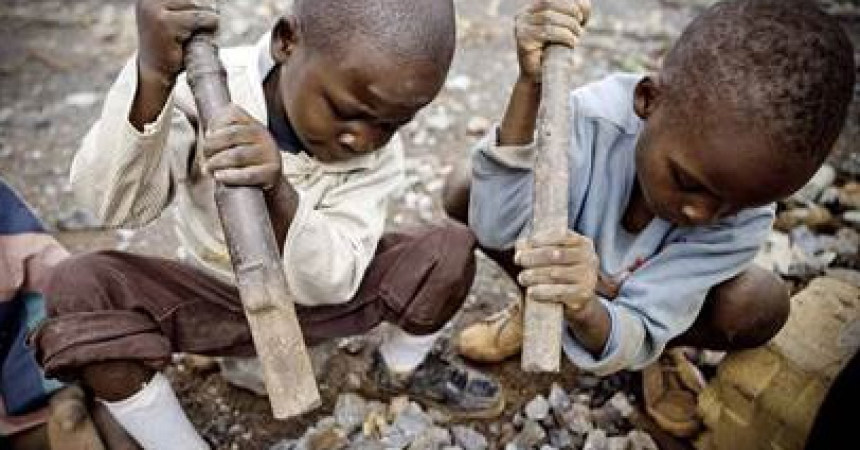
New U. S. administration considers ending ‘conflict minerals’ band
Special to the Outlook from Trice Edney News Wire
A rule requiring public companies to report their use of so-called “conflict minerals” from Congo may soon be eliminated.
The change under review by the Securities and Exchange Commission could benefit the armed groups that control many of the small mines and provide cover to multinational corporations who buy the resources often at cut rate prices – increasing the region’s potential for conflict.
Conflict resources include lumber, oil, diamond, gold, cobalt, oil, among others that are harvested through exploitation and terror during or after a conflict.
This week, newly appointed Republican acting chairman of the SEC, Michael Piwowar, called the rule “misguided,” saying there is little proof it has reduced conflict or eased humanitarian suffering in Congo.
In addition, he said, it may be creating a “vacuum filled by those with less benign interests” that could undermine U.S. security interests. He ordered the SEC to review the regulation.
The SEC issued the rule in 2012 under the Dodd-Frank financial overhaul law. Public companies are required, under the law, to disclose information about their use of minerals from Congo in an effort to inhibit armed groups linked to atrocities who have profited from minerals used in electronics, jewelry and other goods.
Companies that use the designated minerals from Congo and neighboring countries in their products must report annually on their efforts to trace the so-called “conflict minerals” back to their sources. The regulators said stricter reporting requirements might help curb the violence in Congo and would make companies more accountable to shareholders.
Last May, at a Forum on Responsible Mineral Supply Chains held in Paris, it was noted that states have an obligation under international law to take appropriate steps to protect people against human rights abuses by third parties such as companies.
However, they report, “States are not meeting their commitment” to ensure that companies follow the rules.
A recent Amnesty International report sounded the alarm on a “blood mineral” mined by Congolese children as young as seven and used in rechargeable lithium-ion batteries found in laptops, smartphones and even electric cars.
The mineral is cobalt, and more than half of the world’s supply comes from the Democratic Republic of Congo, including at least 20 percent which is mined by so-called “artisanal miners” in the southern part of the country. The report, titled “This Is What We Die For,” explains the conditions these miners work in:
“These artisanal miners, referred to as ‘creuseurs’ in the DRC, mine by hand using the most basic tools to dig out rocks from tunnels deep underground. Artisanal miners include children as young as seven who scavenge for rocks containing cobalt in the discarded by-products of industrial mines, and who wash and sort the ore before it is sold.”
“Our analysis shows that most companies seem to prefer business-as-usual to genuinely addressing the risk that their mineral purchases bankroll armed groups overseas,” said Carly Oboth, Policy Adviser at Global Witness.
“This is alarming. Well-funded industry groups have fought the conflict minerals law at every step. If companies had instead spent these resources on properly investigating and reporting on their supply chains, their customers would be more confident their goods were conflict free.”
The SEC has taken few public steps to administer the rule since 2015 and hasn’t pursued any enforcement action regarding it. In early 2016, it decided not to seek Supreme Court review of the Second Circuit decision that found elements of the rule to be unconstitutional.
For years, armed groups and criminal elements in the Central African nation have fed off the illicit trade of gold, tin, tantalum and tungsten, according to reports by a United Nations panel of experts.
Dr. Denis Mukwege, acclaimed Congolese surgeon and humanitarian, said: “Companies must do more to find out how the minerals they are buying have been produced and traded… They must show that they have put this right.”
GLOBAL INFORMATION NETWORK creates and distributes news and feature articles on current affairs in Africa to media outlets, scholars, students and activists in the U.S. and Canada. Our goal is to introduce important new voices on topics relevant to Americans, to increase the perspectives available to readers in North America and to bring into their view information about global issues that are overlooked or under-reported by mainstream media.








